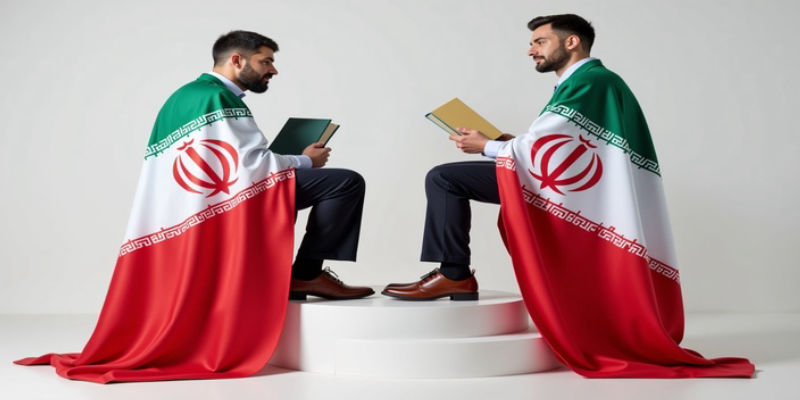Pursuing a PhD is a unique academic path for students that, when followed based on research interests, can be highly rewarding and greatly contribute to their academic growth and success. However, before embarking on this level of study in Iran, there are several important points international students in Iran should consider, which we will address in this article. Whether you are looking to study in Iran for personal or professional reasons, understanding these key factors will help ensure a successful academic journey.
Study Phd in Iran
The highest level of graduate education in this country is the PhD program. The achievements of research-based programs in this country are substantial, including the creation of knowledge, new technologies, theories, ideas, technical advancements, and patents. Admission to this level of study is granted through a national exam, though in special cases, admission without the exam may also be possible in limited numbers.
To enter and continue education at this level, Master’s graduates who meet a series of general and specific conditions outlined in the registration guide can sit for the national entrance exam. If they are accepted, they may continue their studies.
According to the Law on Student Assessment and Admission to Graduate Programs at Universities and Higher Education Centers," PhD student admission is semi-centralized and occurs in two stages: scientific assessment (entrance exam) and a scientific interview, which includes evaluating educational and research backgrounds.
The entrance exam, which is the first stage of the admission process for those who wish to study in Iran, is held once a year. The questions in the entrance exam are based on the academic knowledge at the undergraduate and Master’s levels for each field of study. However, international students in Iran do not need to take this exam, and if they have obtained their Master's degree from a globally recognized institution, they can apply for admission to this program.
PhD programs in this country are offered in two formats: the Course-Research-based PhD and the Research-based. The Course-Research-based includes coursework and completion of a thesis, while the Research-based focuses primarily on research, leading to the development and creation of new ideas and technologies, including the production, patenting, and innovating of new concepts. It also includes a limited number of coursework units and the requirement to complete a thesis.

According to the educational regulations, the total number of credit units for the Course-Research-based is 36 units: 12-18 units of coursework and 18-24 units of research. According to the rules and regulations, students must complete the required units in their educational chart. In the Research-based PhD, 3-8 units of coursework are offered, and 28-33 units are dedicated to the dissertation. In total, the primary courses and dissertation add up to 36 units.
Based on public service regulations, the maximum allowable duration for a non-continuous PhD program is 6 years. The typical duration for completing a PhD is between 3.5 to 5 years, but it can extend to 6 or 7 years in some cases. When considering pursuing this level, students should take into account the job market for their chosen field and carefully consider whether continuing their studies at this level is a worthwhile decision.
Some fields have very good career prospects, while others may not offer significant value. Learning a language should be a priority for students at any academic level, but at this level, it’s not enough to merely learn the language; proficiency and mastery of the language are essential for continuing education, especially if you decide to study in Iran.
Although the entrance exam is not mandatory for international students in Iran, you may still be invited for an interview. You will need to demonstrate your proficiency in English during the interview. The better your spoken English, the higher your chances of acceptance. Furthermore, this proficiency will be immensely helpful for translating works and reading foreign academic literature throughout your studies.
International students can pursue PhD programs at several universities in this country, many of which are well-regarded for their academic excellence and research opportunities. Some of the top institutions for PhD studies in this country include University of Tehran (UT), Sharif University of Technology (SUT), Amirkabir University of Technology (AUT), Isfahan University of Technology (IUT), Tehran University of Medical Sciences (TUMS), Ferdowsi University of Mashhad (FUM), Shiraz University, and more.
PhD Admission Requirements for Iran
PhD programs in this country are primarily conducted in Persian, although many leading universities offer English-taught options, particularly in STEM fields and other disciplines. Proficiency in the language of instruction is essential. To apply for this level, candidates typically need a Master's degree in a relevant field and a strong research background, with published papers being preferred for competitive programs. For English-taught programs, an IELTS score of 6.0–6.5 or equivalent proficiency is required for those looking to study in Iran, while for Persian-taught programs, proof of Persian fluency or completion of a preparatory course is necessary. Additionally, some universities may ask for a research proposal that aligns with faculty expertise.

PhD Tuition Fees in Iran
PhD tuition fees in this country typically range from $2,000 to $5,000 per year, depending on the university, program, and field of study. For international students in Iran, this cost is relatively affordable compared to many other countries. However, at this level, there are more scholarships available compared to other academic levels. Additionally, while studying in this country at this level, you can engage in research and work, which helps reduce your expenses. Certainly, someone pursuing this level has many job opportunities available to them.
Conclusion
To sum up, pursuing a PhD to study in Iran offers a distinctive academic journey, rich with opportunities for both groundbreaking research and personal development. The country’s PhD programs are both challenging and varied, offering choices between Course-Research or research-driven paths. While the admissions process is competitive, it opens up a wealth of opportunities for both local and international students to study in Iran, particularly at prestigious institutions like the University of Tehran and Sharif University of Technology.
That being said, prospective students should carefully consider several factors, including language requirements, job market outlook, and the specific prerequisites of each program. While tuition fees are generally affordable, scholarships and research positions can further alleviate financial strain. Ultimately, earning a PhD in this country can be a rewarding investment for those dedicated to advancing their academic and professional careers in research and innovation.
The PersiaStudy team is here to support you every step of the way, helping to make the application process and university selection smoother and more straightforward for those who wish to study in Iran. With their expertise, they can guide you through the complexities of applying for a PhD in this country, ensuring that you choose the best program and institution to align with your academic and professional goals.
 Sign In with Google
Sign In with Google 